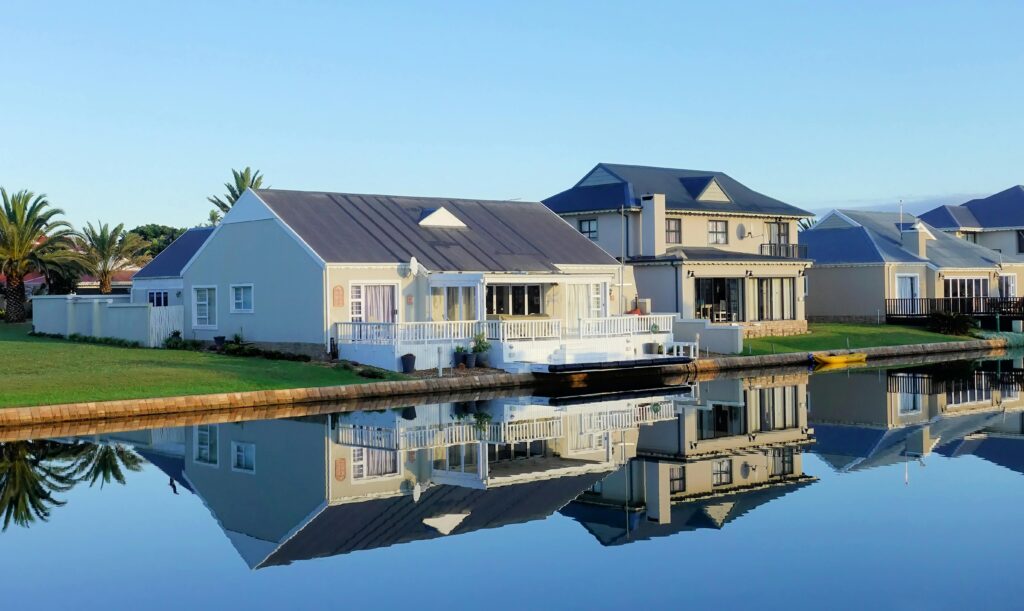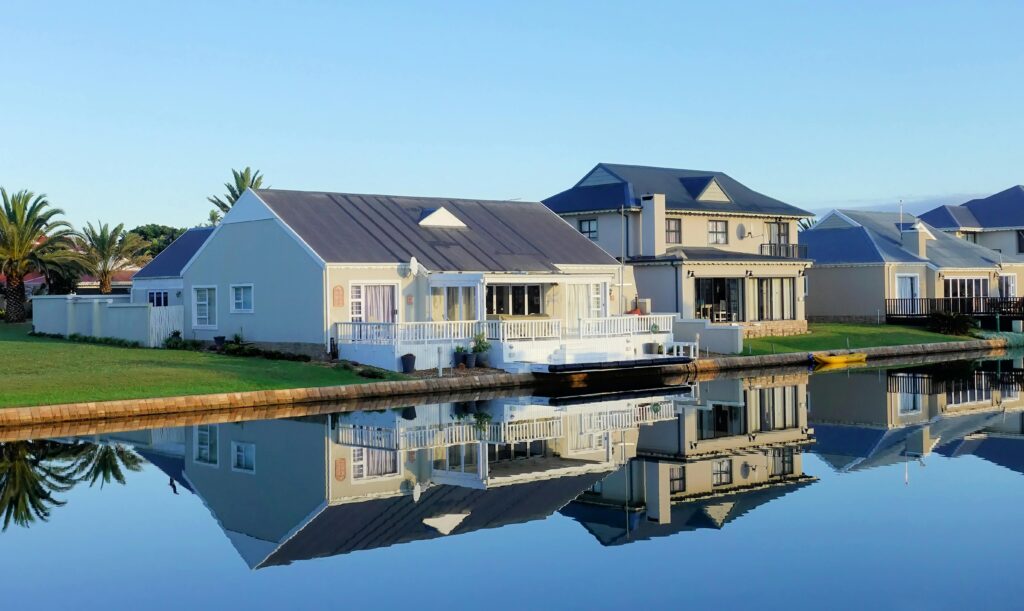Rental arbitrage is a business model where you sign a long-term lease with a property owner and list that property as a short-term rental on platforms like Airbnb and Vrbo. You keep the difference between your monthly rent and the income guests pay per night.
No down payment. No mortgage. No property ownership required. Just the spread between what you pay and what guests pay.
The short-term rental market is projected to reach $113 billion by 2027, and rental arbitrage remains one of the fastest ways to tap into that growth. This guide covers everything you need to start: real financial breakdowns, legal requirements, startup costs, case studies from actual operators, and the mistakes that sink most beginners.
What Is Rental Arbitrage?
Rental arbitrage is the practice of leasing a property through a long-term agreement (typically 12+ months) and re-renting it on a short-term basis to travelers. The arbitrageur earns the spread between the fixed monthly rent and the variable nightly guest income.
Here is how it works in practice:
- You sign a lease for $2,200/month on a two-bedroom apartment
- You furnish it and list it on Airbnb at $200/night
- At 20 nights booked per month, you generate $4,000 in gross revenue
- After rent ($2,200), cleaning ($300), and platform fees ($300), you net approximately $1,200/month in profit
This differs from co-hosting (managing someone else’s property for a percentage fee) and property management (operating owner-occupied vacation rentals). In rental arbitrage, you control the lease, the listing, the pricing, and the guest experience.
Core requirements to get started:
- A lease agreement that explicitly allows subletting or short-term rental use
- Written landlord consent (verbal agreements provide zero protection)
- Compliance with local short-term rental regulations
- Startup capital of $4,000 to $15,000 depending on your market
The Bridge Method: An Alternative Entry Point
Some operators use what’s called the “bridge method”, starting with co-hosting or co-listing to build skills, capital, and a track record before transitioning into rental arbitrage. This approach reduces risk because you earn management fees without carrying fixed lease payments. Learn more about how to make money on Airbnb without owning property in our detailed guide.
10XBNB recommends this progression: co-listing first, then rental arbitrage, then property ownership. Each phase builds the skills and capital for the next.
Is Rental Arbitrage Legal?
Yes. No federal law in the United States bans rental arbitrage. Legality depends entirely on three factors: your lease agreement, local regulations, and landlord permission.
Federal and State Laws
There is no blanket prohibition at the federal or state level. However, individual cities and municipalities set their own rules for short-term rentals.
Local Short-Term Rental Regulations
Regulations vary dramatically by city:
Restrictive markets: New York City (Local Law 18 removed 75% of listings, leaving only 2,100 approved), San Francisco, Los Angeles, Barcelona (phasing out tourist apartments by 2028), and Jersey City all impose strict limitations or outright prohibitions.
Permissive markets: Orlando, Austin, Nashville, Denver, Scottsdale, Miami, and Savannah welcome short-term rentals with clear permit processes. These are the markets where rental arbitrage thrives.
Before signing any lease, verify:
- Whether short-term rentals are permitted in that zone
- What permits or licenses are required
- Whether there are occupancy limits or minimum stay requirements
- Any homeowner association (HOA) restrictions that apply
Landlord Approval and Your Lease Agreement
Written consent from the landlord is non-negotiable. Most standard leases prohibit subletting, so you need explicit permission added to your lease agreement.
Why would a landlord agree? Several compelling reasons:
- Guaranteed rent payments regardless of your occupancy, the landlord gets paid whether you have guests or not
- Property maintained to hotel standards – short-term rental operators keep units in better condition than typical long-term tenants
- Higher-quality care – you have a financial incentive to protect the property
- No vacancy gaps – the landlord avoids the typical turnover costs between long-term tenants
- Revenue sharing option – some operators offer the landlord a percentage above base rent
- Additional insurance – you carry specialized STR insurance, and landlords can be added as additional insureds on your policy
Regulatory Compliance and Risks
Failing to comply with local laws can result in fines, legal action, or being forced to shut down your operation. Cities can pass new short-term rental rules at any time. Stay current with local regulations and maintain all required permits.
Is Rental Arbitrage Profitable in 2026?
Yes, when executed correctly. The U.S. Short-term rental market averaged a $314 daily rate in 2024 according to AirDNA data, and demand continues to grow as remote work increases the appeal of unique accommodations.
How Much Can You Make?
A well-run rental arbitrage property can net $800 to $5,000 per month after all expenses, depending on your market, property type, and operational efficiency.
| Scenario | Monthly Rent | Nightly Rate | Occupancy | Gross Revenue | Monthly Profit |
|---|---|---|---|---|---|
| Conservative | $1,500 | $120 | 65% | $2,340 | $400–$600 |
| Moderate | $2,200 | $175 | 70% | $3,675 | $800–$1,400 |
| Strong Market | $2,500 | $200 | 80% | $4,800 | $1,200–$2,000 |
| Premium Market | $3,000 | $250 | 85% | $6,375 | $2,000–$3,000+ |
Successful operators often generate 50-200% annual ROI with proper execution. The key threshold: aim for 65% occupancy or higher to cover rent and expenses while maintaining profit.
What Affects Profitability?
- Location – tourist destinations and business hubs consistently outperform suburban markets
- Nightly rate vs. Monthly rent – your nightly rate should be at least 2.5x the daily equivalent of your monthly rent
- Seasonal fluctuations – some markets see 40-60% revenue swings between peak and off-peak seasons
- Local competition – oversaturated markets compress rates and occupancy
- Operational efficiency – cleaning costs, platform fees (typically 3% for Airbnb hosts), and maintenance directly impact margins
ROI Formula
Calculate your target ROI before signing any lease:
Monthly ROI = (Monthly Revenue-Monthly Expenses) / Total Investment
Target a ratio of 2.0 or higher, meaning $2 in revenue for every $1 in total costs. Below 1.5, the deal likely is not worth the risk.
Real Case Studies: What Rental Arbitrage Looks Like in Practice
Case Study 1: Denver, 168% First-Year ROI
Sarah invested $8,000 in initial capital including security deposit, first month’s rent, furnishing, and professional photography for a two-bedroom apartment in a high-demand Denver neighborhood.
Implementation timeline:
- Three months securing proper permits and landlord approval
- Property setup and listing creation across Airbnb, Vrbo, and Booking.com
- Gradual occupancy increase from 45% to 85% over six months
- Implementation of a direct booking site to reduce platform fees
Financial results after 12 months:
- Monthly revenue: $6,200 (85% occupancy at $185 average nightly rate)
- Monthly expenses: $2,000 (rent, cleaning, utilities, platform fees)
- Monthly profit: $4,200
- First-year ROI: 168%
- Expanded to three properties within 18 months
Case Study 2: Denver, Conservative Scenario (98% ROI)
A second Denver operator took a more conservative approach with a two-bedroom near downtown at $2,800/month rent and a $5,000 initial investment.
Monthly performance breakdown:
| Month | Gross Income | Total Costs | Net Profit |
|---|---|---|---|
| January | $4,320 | $3,450 | $870 |
| February | $3,960 | $3,280 | $680 |
| March | $5,040 | $3,520 | $1,520 |
| April | $4,680 | $3,380 | $1,300 |
- Average occupancy: 75%
- Average daily rate: $180
- Annual profit: $4,900 on a $5,000 investment = 98% ROI
- Payback period: approximately 6 months
Case Study 3: Orlando, Beginner Scenario
A first-time operator leased a two-bedroom apartment for $2,500/month in Orlando:
- Nightly rate: $200
- First month: 15 booked nights = $3,000 income
- Profit after rent and expenses: approximately $500/month
- As reviews and occupancy improved over 6 months, monthly profit climbed to $1,200–$1,800
These case studies illustrate a consistent pattern: conservative operators earn 50-100% annual ROI, while optimized operations can exceed 150%.
How to Start a Rental Arbitrage Business (8-Step Process)
Step 1: Check Local Regulations
Verify short-term rental legality in your target market. Check city and county websites for permit requirements, zoning restrictions, and any registration fees. Some markets require a hospitality license or business tax registration.
Step 2: Run Market Research
Analyze rates, occupancy, and demand in your target area. Use tools like AirDNA, KeyData Dashboard, or Wheelhouse Pro to evaluate:
- Average daily rates in the market
- Seasonal occupancy patterns
- Competition density
- Revenue potential by property type
Target markets where nightly rates and occupancy clear your monthly rent in 15 to 18 booked nights.
Step 3: Find Rental Arbitrage Properties
Search Zillow, Apartments.com, Craigslist, and Facebook Marketplace. Scout neighborhoods in person. Target properties near:
- Convention centers and event venues
- Military bases
- Major employer hubs
- Airports and universities
- Tourist attractions and downtown areas
Focus on areas with year-round occupancy demand rather than purely seasonal markets.
Step 4: Get Landlord Approval
Present a professional proposal to the property owner. Include:
- Your business plan and revenue projections
- Proof of specialized STR insurance (landlord can be added as additional insured)
- Guest screening procedures and house rules
- Revenue-sharing offer or above-market rent
- References from previous landlords if available
The key sell: guaranteed rent payments, professional-grade property maintenance, and additional insurance coverage that protects their asset.
Step 5: Sign Your Lease
Ensure the lease explicitly permits short-term rental or subletting use. Document:
- Guest rules and maximum occupancy
- Damage responsibility and insurance requirements
- Noise restrictions and quiet hours
- Landlord notification procedures
Never rely on verbal permission. Get it in writing.
Step 6: Furnish and Prepare the Property
Budget $3,000 to $8,000 for furnishing a one- to two-bedroom unit. Invest in:
- Quality mattresses and bedding
- Full kitchen setup (cookware, dishes, utensils)
- Fast Wi-Fi and a smart TV
- Washer/dryer access
- Toiletries, towels, and linens
- Local guidebook (digital tools like Touch Stay work well)
- Smart lock for self check-in
Then invest $200–$500 in professional photography. This is one of the highest-ROI investments you will make, listings with professional photos earn significantly more bookings.
Step 7: List on Multiple Platforms
Create listings on Airbnb, Vrbo, and Booking.com. For each platform:
- Write clear, detailed descriptions emphasizing unique features
- Set competitive initial pricing (slightly below market to build reviews)
- Implement dynamic pricing using tools like PriceLabs, Beyond Pricing, or Wheelhouse
- Enable instant booking if the platform supports it
Step 8: Manage Bookings and Guests
Use property management software to automate:
- Guest messaging and check-in instructions
- Cleaning schedules between guests
- Review requests
- Calendar synchronization across platforms
Respond to inquiries within one hour. Earn five-star reviews consistently. Reviews are the currency of short-term rental platforms. Your first 10 reviews determine your long-term success.
Startup Costs Breakdown
| Cost Category | Typical Range | Notes |
|---|---|---|
| First Month’s Rent | $1,500–$3,000 | Varies by market |
| Security Deposit | $1,500–$3,000 | Often equal to one month’s rent |
| Furniture & Amenities | $3,000–$8,000 | Quality matters, cheap furniture leads to bad reviews |
| STR Insurance | $80–$200/month | Specialized coverage, not standard renter’s insurance |
| Professional Photography | $200–$500 | One-time investment, massive ROI |
| Initial Supplies & Linens | $300–$600 | Toiletries, towels, kitchen essentials |
| Utility Deposits | $100–$300 | Electric, gas, internet setup |
| Permits/Licenses | $0–$500 | Market-dependent |
| Total Estimated Range | $4,000–$15,000 | Lower end: budget markets. Upper end: premium markets |
Pro tip: Overestimate costs by 20% and plan for 10% lower occupancy during your first six months while you build reviews and optimize operations. Maintain a cash reserve equal to at least two to three months of rent.
Rental Arbitrage vs. Other Investment Strategies
| Strategy | Startup Cost | Monthly Cash Flow | Risk Level | Time to First Dollar | Equity Building |
|---|---|---|---|---|---|
| Rental Arbitrage | $4K–$15K | $800–$5,000 | Medium | 2-4 weeks | None |
| Property Ownership | $50K–$200K+ | $500–$3,000 | High | 2-6 months | Yes |
| Co-Hosting | $0–$2,000 | $500–$1,500 | Low | 1-2 weeks | None |
| Co-Listing | $0–$1,000 | $300–$2,000 | Low | 1-2 weeks | None |
| Traditional Investing | $1K–$10K | $50–$500 | Low | Months-Years | Yes |
Rental Arbitrage vs. Buying Property
Buying property builds equity, provides mortgage interest deductions, and offers long-term appreciation. But it requires $50,000+ in capital, strong credit, and carries significant financial risk if the market turns.
Rental arbitrage generates immediate income with a fraction of the capital. The trade-off: you build zero equity, and your business depends on landlord lease renewals.
Strategic approach: Use rental arbitrage income to save for real estate. Start with short-term rentals. Build skills and capital. Then buy your first investment property with operational expertise most new owners lack.
Rental Arbitrage vs. Co-Listing
In co-listing, you manage a property owner’s listing on vacation rental platforms without signing a lease. You earn a cut of booking revenue (typically 15-25%) instead of paying monthly rent. There are no fixed rental costs and lower risk, but your income varies directly with bookings.
Profit distribution models in co-listing:
- 80/20 split (owner keeps 80%, you keep 20%)
- Fixed fee + performance bonus
- Guaranteed minimum to owner + you keep the rest
Co-listing works as a stepping stone. 10XBNB recommends the progression: co-listing first, rental arbitrage, property ownership.
Insurance and Liability for Vacation Rental Hosts
Standard renter’s insurance does not cover commercial short-term rental activity. One claim could drain your savings if you are not properly covered.
What You Need
- Specialized STR insurance – policies designed for vacation rental hosts (not standard homeowner’s or renter’s policies)
- Guest injury liability – covers medical expenses if a guest is injured on the property
- Property damage protection – covers damage caused by guests beyond normal wear and tear
- Business interruption coverage – reimburses lost rental revenue if the property becomes uninhabitable
- $1 million commercial general liability (CGL) – the standard recommendation for rental arbitrage operators
Insurance Costs
Expect to pay $80 to $200 per month per property for specialized STR coverage. The exact cost depends on:
- Property location and value
- Coverage limits
- Number of guests permitted
- Claims history
Providers like Proper Insurance specialize in short-term rental coverage and can add your landlord as an additional insured on the policy, a powerful selling point when pitching landlords.
Standard Renter’s Insurance vs. STR Coverage
| Feature | Standard Renter’s | STR Insurance |
|---|---|---|
| Covers personal belongings | Yes | Yes |
| Covers guest injuries | No | Yes |
| Covers guest-caused damage | No | Yes |
| Covers business interruption | No | Yes |
| Landlord as additional insured | Rarely | Yes |
| Covers commercial activity | No | Yes |
| Monthly cost | $15–$30 | $80–$200 |
Without proper STR insurance, one guest injury claim or major property damage event could wipe out months of profit.
Do I Need an LLC for Rental Arbitrage?
You do not legally need an LLC to start. Many operators begin as sole proprietors, especially with their first property.
Why an LLC Helps
- Shields personal assets from business liabilities, if a guest sues, your personal bank accounts and property are protected
- Opens tax deductions specific to business entities
- Adds credibility when negotiating with property owners
- Simplifies insurance procurement and claims
When to Form an LLC
Once you manage multiple properties or scale past two or three units, an LLC becomes essential. Formation costs $500 to $1,000 in most states.
Best Markets for Rental Arbitrage
Strong rental arbitrage markets share these characteristics:
- Short-term rentals are legal with clear, predictable rules
- Nightly rates and occupancy clear your monthly rent in 15 to 18 booked nights
- Landlords are open to the arrangement
- Year-round demand (not purely seasonal)
High-Demand Market Types
- Convention and event cities – steady business travel demand
- Military base proximity – relocating personnel and visiting families
- Major employer hubs – corporate housing demand
- University towns – parents visiting, graduation season, sports events
- Year-round tourism – markets with multiple demand drivers across all seasons
Markets to Research in 2026
Strong performers include Denver, Austin, Nashville, Orlando, Scottsdale, Miami, Savannah, and Washington D.C. Internationally, cities like Reykjavik, Dublin, Amsterdam, Stockholm, and Copenhagen show strong STR premiums.
Avoid markets with recent regulatory crackdowns (New York, Barcelona, San Francisco) unless you have deep local expertise and legal counsel.
Use AirDNA, Mashvisor, or Airbtics to pull actual market data before committing to any lease. Never choose a market based on “gut feel” alone.
Essential Tools for Your Rental Arbitrage Business
| Tool Category | Recommended Tools | What They Do |
|---|---|---|
| Market Research | AirDNA, Mashvisor, Airbtics | Revenue projections, market data, comp analysis |
| Dynamic Pricing | PriceLabs, Beyond Pricing, Wheelhouse | Automated nightly rate optimization |
| Property Management | Hostaway, Guesty, Hospitable | Multi-platform calendar sync, guest messaging, automation |
| Guest Experience | Touch Stay, Hostfully | Digital guidebooks, local recommendations |
| Cleaning Management | Turno (TurnoverBnB) | Automated cleaning scheduling between guests |
| Accounting | Stessa, QuickBooks | Expense tracking, tax preparation |
Tax Benefits for Short-Term Rental Hosts
Deductible expenses include:
- Furniture and furnishings (depreciation)
- Cleaning supplies and services
- Platform fees
- Insurance premiums
- Utilities (internet, electric, gas, water)
- Professional photography
- Travel to and from the property
- Property management software
- Repairs and maintenance
- Home office deduction (if applicable)
Track every expense from day one. Work with a CPA who specifically understands short-term rental tax law, the deductions available to STR operators are significantly different from traditional landlord deductions.
Common Mistakes That Ruin an Arbitrage Business
Skipping Legal Homework
Ignoring regulations can shut down your operation overnight. Research local laws before signing any lease, not after.
Underestimating Costs
New hosts forget cleaning fees, platform commissions (3% on Airbnb), restocking supplies, maintenance, and seasonal vacancy. Add 20 to 30 percent on top of your estimated expenses when building financial projections.
Choosing the Wrong Market
A cheap lease means nothing without demand for short-term rentals in that area. Always validate demand with data (AirDNA occupancy rates, average daily rates, seasonal patterns) before committing.
Poor Guest Experience
Bad reviews destroy occupancy rates. One-star reviews push your listing down in search rankings, which reduces bookings, which reduces revenue. Invest in quality furnishings, fast response times, spotless cleaning, and proactive guest communication.
Operating Without Insurance
Standard renter’s insurance does not cover STR activity. One guest injury or major damage event without proper coverage can cost tens of thousands of dollars.
Not Building Cash Reserves
Guests or no guests, you owe monthly rent. Slow seasons, unexpected repairs, and regulatory changes happen. Maintain a reserve equal to at least two to three months of rent per property.
Scaling Your Rental Arbitrage Business
Once your first unit runs profitably for two to three months, the scaling playbook is straightforward:
- Document your systems – create standard operating procedures for guest communication, cleaning, check-in/check-out, and pricing
- Add a second property in the same market to use existing cleaning teams and local knowledge
- Hire a virtual assistant to handle guest messaging, review management, and booking coordination ($5–$15/hour)
- Implement property management software to synchronize calendars across Airbnb, Vrbo, and Booking.com
- Build landlord relationships – your best source of new properties is referrals from current landlords
- Reinvest profits – allocate 30-50% of profits toward furnishing and launching the next unit
- Monitor and optimize – track occupancy, ADR, and RevPAR monthly across your portfolio
Some 10XBNB students manage 10+ properties within 12-18 months of launching their first unit. The model scales because the core systems (pricing, messaging, cleaning) work the same way whether you manage 1 property or 15. See what students are actually achieving with these scaling strategies.
The Future of Rental Arbitrage
The short-term rental industry continues to evolve:
- AI-powered pricing – dynamic pricing tools are becoming more sophisticated, optimizing rates in real-time based on demand, events, and competitor pricing
- Mid-term rental pivot – some operators supplement short-term bookings with 30+ day stays for traveling professionals, reducing turnover costs and platform fees
- Regulatory technology – compliance management tools are making it easier to track and maintain permits across multiple jurisdictions
- Sustainability – eco-friendly hosting practices and green certifications are becoming differentiators in competitive markets
- Direct booking growth – experienced operators are building their own booking websites to reduce platform dependency and commission costs
The operators who will thrive are those who treat rental arbitrage as a legitimate business from day one: proper legal structure, professional insurance, data-driven market selection, and relentless focus on guest experience.
How 10XBNB Helps You Launch a Rental Arbitrage Business
Shaun Ghavami started with a spare bedroom listed at $65/night. No savings. No real estate experience. He built that into managing over $100 million in vacation rental properties, generating over $5 million in booking fees with more than 1,000 five-star guest reviews through his company Hosticonic.com.
10XBNB distills that experience into a structured program:
- Weekly coaching calls with active operators
- Proven landlord negotiation scripts
- Market analysis frameworks and tools
- Legal compliance templates by state
- Scaling blueprints from 1 to 10+ properties
- A community of 1,000+ students building STR businesses
The program follows a clear progression: learn co-listing to build skills with zero risk, transition to rental arbitrage for higher returns, then use your profits and expertise to acquire property.
Frequently Asked Questions
Is rental arbitrage illegal?
No. Rental arbitrage is not illegal by default. It becomes illegal when it violates your lease terms, local zoning rules, or short-term rental ordinances. Always verify legality in your specific market and secure written landlord permission before operating.
Is rental arbitrage profitable?
Yes, when nightly revenue from short-term guests exceeds your rent plus all operating costs. Typical monthly profits range from $800 to $5,000 per property. Successful operators report annual returns of 50-168% on their initial investment.
What is rental arbitrage?
Rental arbitrage is a business model where you lease a property from an owner on a long-term agreement and list it as a short-term rental on Airbnb, Vrbo, or similar platforms. Your profit is the gap between what you pay in monthly rent and what guests pay per night.
Do I need an LLC for rental arbitrage?
Not legally. But an LLC separates your business from your personal assets, which protects you if a guest files a lawsuit or a claim exceeds your insurance limits. Most operators form an LLC once they manage two or more properties.
How much does it cost to start rental arbitrage?
Total startup costs range from $4,000 to $15,000 depending on your market. This includes first month’s rent, security deposit, furnishing ($3,000–$8,000), insurance ($80–$200/month), professional photography ($200–$500), and initial supplies.
What is the bridge method in rental arbitrage?
The bridge method involves starting with co-hosting or co-listing (managing other people’s properties for a fee) to build skills, capital, and a track record before taking on the fixed costs of a lease. This approach reduces risk for first-time operators.
Why would a landlord agree to rental arbitrage?
Landlords benefit from guaranteed rent payments regardless of your occupancy, professional-grade property maintenance, additional insurance coverage (they can be listed as additional insured on your STR policy), and potentially above-market rent or revenue sharing.
How long until I am profitable?
Most operators reach profitability within 1-2 months of launching their first listing. The initial investment is typically recovered within 4-8 months. Full optimization (85%+ occupancy, five-star review average, dynamic pricing) often takes 6-12 months to achieve.
Key Takeaways
- Rental arbitrage lets you generate income from short-term rentals without property ownership, with startup costs of $4,000–$15,000
- The model generates 50-168% annual ROI when executed correctly, with monthly profits of $800–$5,000 per property
- Success requires solid market research, written landlord approval, local regulatory compliance, and specialized STR insurance ($80–$200/month)
- Real risks include occupancy swings, regulatory changes, and fixed rent obligations, maintain 2-3 months of rent in cash reserves
- Use an LLC, obtain proper insurance, and treat this as a legitimate business from day one
- The proven progression: co-listing, rental arbitrage, property ownership
- Start with one property, build systems, then scale to multiple units using the same operational playbook













